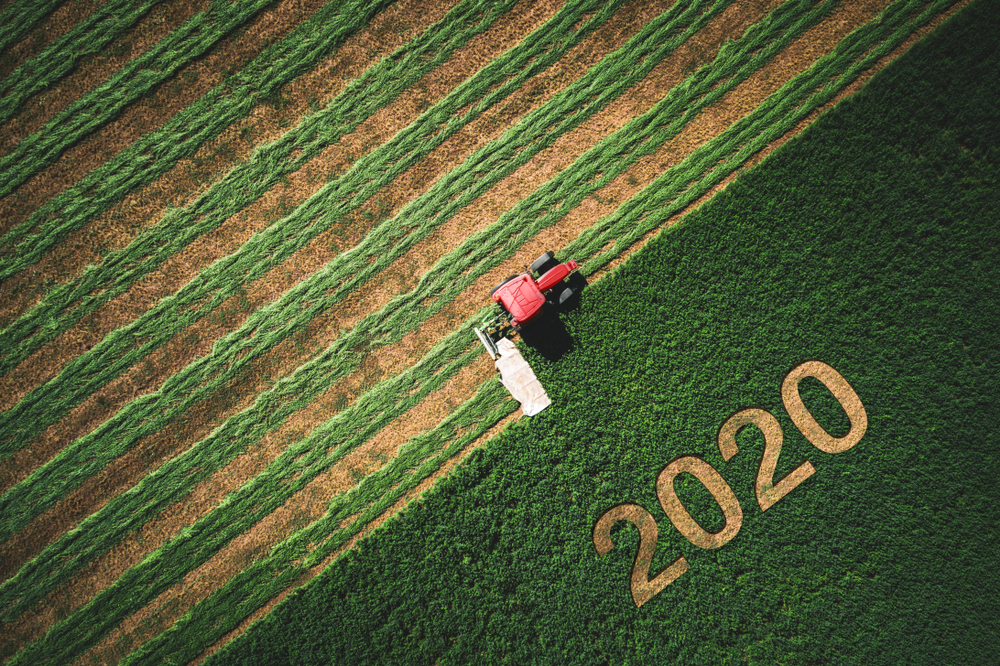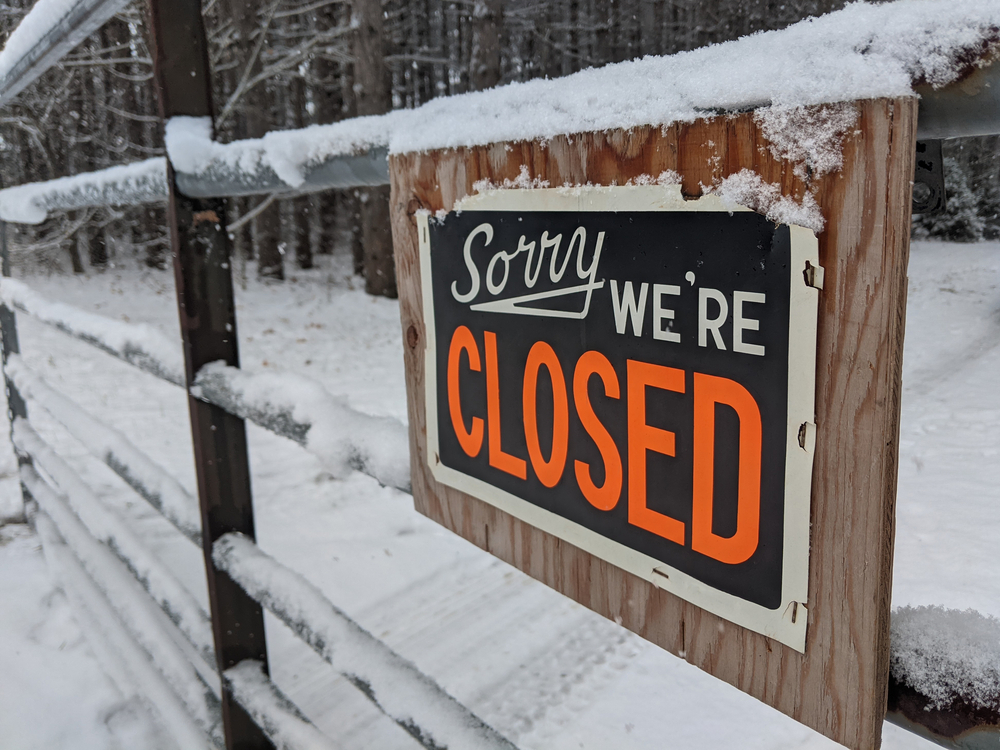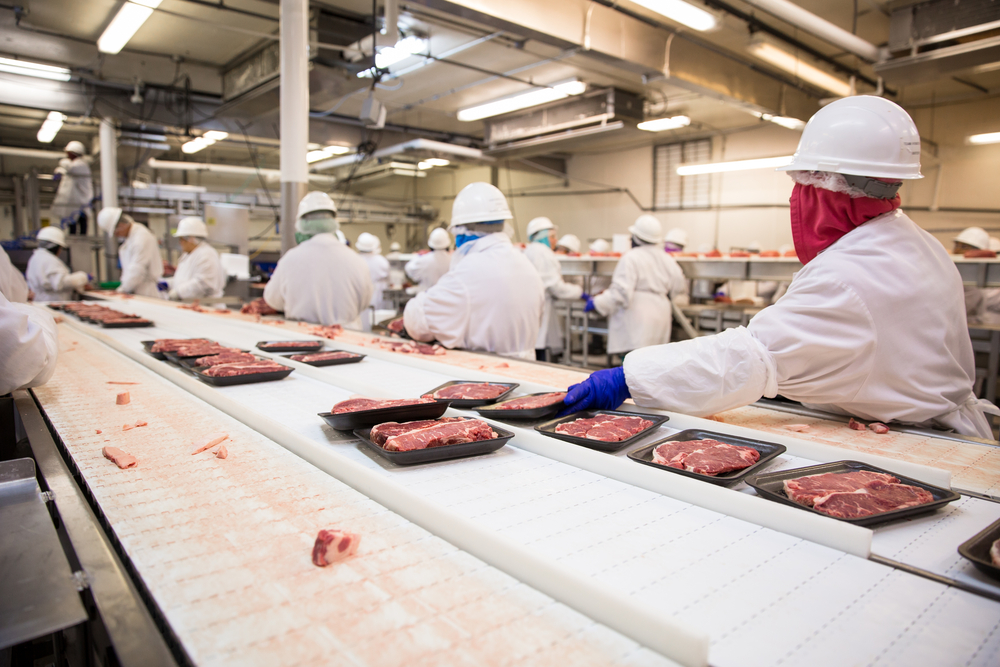This Year in Food and Farming
2020: a year that many would like to forget.
This Year in Food and Farming
2020: a year that many would like to forget.

Good riddance to 2020!by Valentin Valkov on Shutterstock
While many would like to forget the year that just happened, it’s still important to look back and learn from the shitstorm that was 2020. Here are five top stories in the food and farming world from 2020.

5. Gardening Makes a Comeback
2020 wasn’t all doom and gloom. We saw gardening surge in popularity, as people worried about food security and looked for new hobbies to pass the time at home. In April, we reported that vegetable seeds were flying off shelves, as North American seed sellers struggled to keep up with demand. Victory Gardens became a thing again, and more people picked up growing giant vegetables as a pandemic pastime.

4. An Election Like No Other
The election of Joe Biden will likely bring a number of policy changes when it comes to agriculture and food. During the campaign, Biden promised to increase SNAP benefits by 15 percent. As for farming policy, Biden committed to reversing an increase in waivers granted by the Trump administration to oil refineries that let them avoid using a certain amount of ethanol. He also promised to expand programs such as the Conservation Stewardship Program that pay farmers to use sustainable methods.
In Congress, November brought the downfall of a number of representatives in agricultural districts. Long-time Democratic Rep. Collin Peterson lost his reelection bid to Republican Michelle Fischbach in Minnesota’s seventh congressional district. Peterson, who was first elected in 1990, was the chairman of the House Agriculture Committee and is set to be succeeded by Georgia Rep. David Scott.
In other farming districts, Democratic Rep. Xochitl Torres Small lost in a rematch with Republican Yvette Herrell in New Mexico’s second district, and Democrat TJ Cox lost his seat to David Valadao in California’s 21st district.

3. A Devastating Year for Farmers
The pandemic has been a huge struggle for many farmers due to the closure of restaurants and other supply chain disruptions. The Trump administration’s direct aid payments helped alleviate a bit of the pain for some, but reports found these subsidies favored larger farms in the Midwest and the South. Many smaller diversified farms and farmers of color felt they did not receive their fair share.
And despite these payments, farm bankruptcies were up again. As of August, chapter 12 family farm bankruptcies increased 8 percent from the previous year. Total farm income was technically up to almost $120 billion this year, but 40 percent of that was from government subsidies. Farm cash receipts from crop and livestock sales were actually down $3 billion from the year before, according to the American Farm Bureau.

2. Meat Plants, Farmworkers and Supply Chains
The pandemic highlighted and exacerbated striking inequalities across society, particularly in the agricultural sector, where meat plant workers and farmworkers were designated as essential workers. Both struggled through high rates of infection, largely due to poor working conditions and tight living quarters. More than 40,000 meat plant workers have tested positive for COVID-19 in the United States and more than 200 have died. Purdue University estimates that a staggering 145,000 farmworkers have tested positive for the disease, but this number is likely lower than reality as it does not include temporary labor.

1. A National Reckoning
The killing of George Floyd in late May set off a summer of unrest that made many question how they could do more to battle systemic racism. American agriculture has an ugly history of racism that has seen Black farmers lose 90 of their land since the early twentieth century. The conversations that came out of this summer have helped pave the way for the introduction of a bill in the United States Senate, called the Justice for Black Farmers Act, that looks to reclaim Black farmers’ place in American agriculture.
Follow us
This work is licensed under a Creative Commons Attribution-NoDerivatives 4.0 International License.
Want to republish a Modern Farmer story?
We are happy for Modern Farmer stories to be shared, and encourage you to republish our articles for your audience. When doing so, we ask that you follow these guidelines:
Please credit us and our writers
For the author byline, please use “Author Name, Modern Farmer.” At the top of our stories, if on the web, please include this text and link: “This story was originally published by Modern Farmer.”
Please make sure to include a link back to either our home page or the article URL.
At the bottom of the story, please include the following text:
“Modern Farmer is a nonprofit initiative dedicated to raising awareness and catalyzing action at the intersection of food, agriculture, and society. Read more at <link>Modern Farmer</link>.”
Use our widget
We’d like to be able to track our stories, so we ask that if you republish our content, you do so using our widget (located on the left hand side of the article). The HTML code has a built-in tracker that tells us the data and domain where the story was published, as well as view counts.
Check the image requirements
It’s your responsibility to confirm you're licensed to republish images in our articles. Some images, such as those from commercial providers, don't allow their images to be republished without permission or payment. Copyright terms are generally listed in the image caption and attribution. You are welcome to omit our images or substitute with your own. Charts and interactive graphics follow the same rules.
Don’t change too much. Or, ask us first.
Articles must be republished in their entirety. It’s okay to change references to time (“today” to “yesterday”) or location (“Iowa City, IA” to “here”). But please keep everything else the same.
If you feel strongly that a more material edit needs to be made, get in touch with us at [email protected]. We’re happy to discuss it with the original author, but we must have prior approval for changes before publication.
Special cases
Extracts. You may run the first few lines or paragraphs of the article and then say: “Read the full article at Modern Farmer” with a link back to the original article.
Quotes. You may quote authors provided you include a link back to the article URL.
Translations. These require writer approval. To inquire about translation of a Modern Farmer article, contact us at [email protected]
Signed consent / copyright release forms. These are not required, provided you are following these guidelines.
Print. Articles can be republished in print under these same rules, with the exception that you do not need to include the links.
Tag us
When sharing the story on social media, please tag us using the following: - Twitter (@ModFarm) - Facebook (@ModernFarmerMedia) - Instagram (@modfarm)
Use our content respectfully
Modern Farmer is a nonprofit and as such we share our content for free and in good faith in order to reach new audiences. Respectfully,
No selling ads against our stories. It’s okay to put our stories on pages with ads.
Don’t republish our material wholesale, or automatically; you need to select stories to be republished individually.
You have no rights to sell, license, syndicate, or otherwise represent yourself as the authorized owner of our material to any third parties. This means that you cannot actively publish or submit our work for syndication to third party platforms or apps like Apple News or Google News. We understand that publishers cannot fully control when certain third parties automatically summarize or crawl content from publishers’ own sites.
Keep in touch
We want to hear from you if you love Modern Farmer content, have a collaboration idea, or anything else to share. As a nonprofit outlet, we work in service of our community and are always open to comments, feedback, and ideas. Contact us at [email protected].by Modern Farmer, Modern Farmer
December 28, 2020
Modern Farmer Weekly
Solutions Hub
Innovations, ideas and inspiration. Actionable solutions for a resilient food system.
ExploreShare With Us
We want to hear from Modern Farmer readers who have thoughtful commentary, actionable solutions, or helpful ideas to share.
SubmitNecessary cookies are absolutely essential for the website to function properly. This category only includes cookies that ensures basic functionalities and security features of the website. These cookies do not store any personal information.
Any cookies that may not be particularly necessary for the website to function and are used specifically to collect user personal data via analytics, ads, other embedded contents are termed as non-necessary cookies.